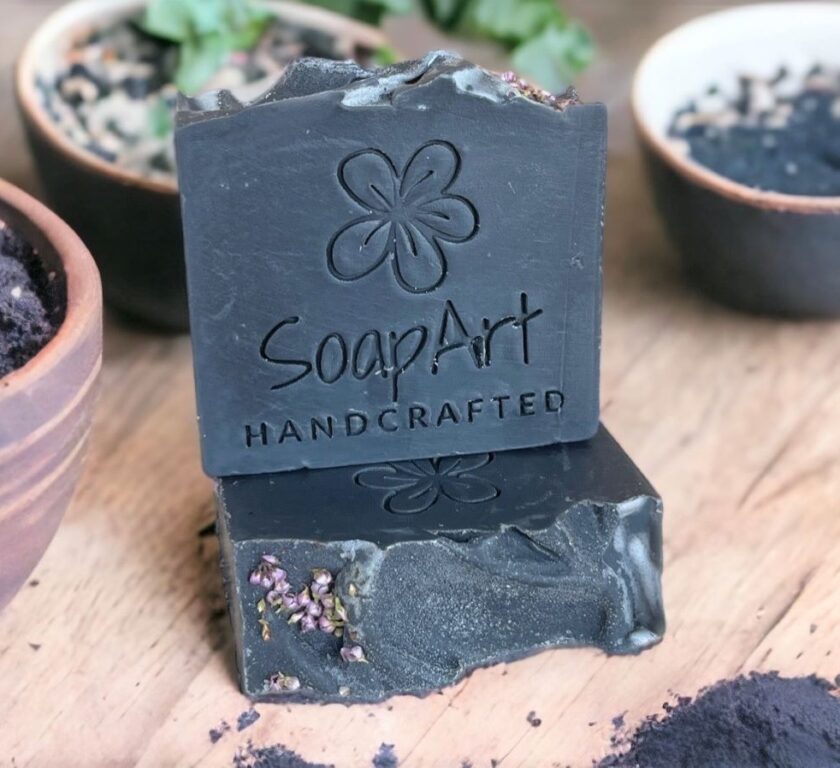Handmade soap is better for you and for the environment
Traditional ways of soap-making are gaining momentum and people increasingly favor natural ingredients and all things handmade.
Is homemade soap better for your skin compared to manufactured, mass produced soap? Us soap artisans would certainly argue in favor of handcrafted soaps and their natural ingredients, especially glycerin. If you are looking for a bar of soap that nourishes the skin without excessive chemicals, you cannot beat handmade soap.
Let us take a deeper look at the soap-making process, the ingredients used, and the differences between a bar of handcrafted soap vs. manufactured soap.
The pH of your skin
The pH scale runs from 1 to 14, with 7 being neutral. Numbers below 7 are considered acidic, while higher numbers are alkaline.
The pH of a healthy adult skin is between 5.4 – 6.0 which although slightly acidic, is necessary to combat harmful microbes. Our soaps are naturally alkaline with a pH of around 9-10 which gently cleanse, leaving your skin feeling clean and healthy, without changing the natural pH.
Glycerin
One great byproduct of handcrafted soap is glycerin. Glycerin is a natural substance created, and left intact, when making soap using the cold process method. It is an emollient and acts as a moisturizing agent that creates a natural protective barrier on the skin.
Manufactured soaps remove the glycerin to make other products, such as hand lotions, and they replace glycerin with synthetic materials that unfortunately fall short of the natural moisturizing properties of glycerin. While many store-bought soaps are good, the added chemicals tend to leave skin dry, and will influence your skins’ natural pH.
Benefits of using our products
The glycerin in our soap is a wonderful benefit and it remains intact during the soap-making process.
The best part of natural soap is the ingredients, and a handcrafted bar of soap is only as “natural” as the ingredients you use to make your soap. Soap is the result of a basic chemical reaction between fats, oils, and lye. This chemical reaction is called saponification and once fully cured, there is no lye present in the soap. That is why the curing process of 4-6 weeks is so important.
By carefully choosing a combination of quality oils, plant-based butters, organic essential oils, dried herbs, botanicals, and natural clays, we create the recipes of our soaps. We make our soaps in small batches so that we can better control the process and to be sure the soaps pass the signature test.
What about the environment?
Our products contain no synthetic chemicals, so you do not have to worry about harming the environment. They are made of natural ingredients and will naturally decompose and will not disturb natural organic cycles.

